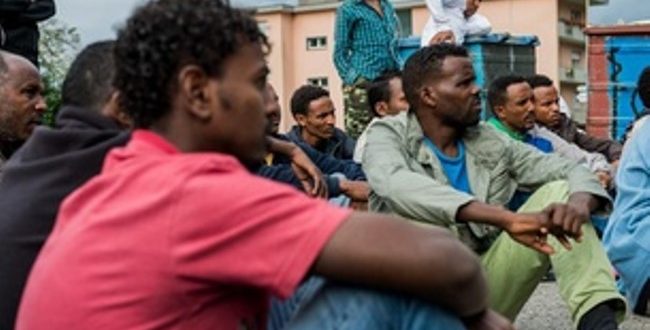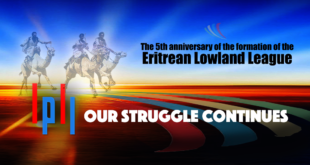Limitations on freedom of movement are just the tip of the iceberg in Eritrea – one the harshest dictatorships in the world.
Yishai Halper
One week later Israel grants entry to 3 African migrants trapped on border; other 18 sent to Egypt
Gag order lifted Uganda will take in thousands of Israel’s African migrants
Surfing the Intranet: North Korea’s authoritarian alternative to the World Wide Web
It’s not a simple matter to drop by a friend’s house for dinner in Eritrea. If the meal is to be attended by at least three guests from various families, the authorities already consider it a gathering that requires a special permit. Nor would travel to an adjacent village be possible without a similar permit. And if you have an urge to write a song on a slip of paper, you need to be mindful that it could be construed as anti-government propaganda that could land you in jail.
Eritrea truly deserves its nickname as the “North Korea of Africa.” Limitations on freedom of movement are just the tip of the iceberg in this East African country that is among the harshest dictatorships in the world. The group Reporters Without Borders ranks the place 179th among 179 countries when it comes to freedom of expression, even lower than North Korea itself.
One of the most glaring reflections of the harshness of the regime in Asmara, the Eritrean capital, is the mandatory military service that citizens on average serve from age 18 until they are 55 and which has spurred many to flee. A spokeswoman for Amnesty International in Israel notes that in a country where the average life expectancy is 61 or 62, this means many spend their entire adult lives in the army, frequently facing hard labor and meager wages.
Anyone who deserts the army and flees country only to be returned to Eritrea is considered an opponent of the regime, according to Sigal Rozen of the Israeli organization, Hotline for Migrant Workers. Rozen says she has met women who have fled the army after ten years of service because the army bars them from getting pregnant; they knew they would never be able to start a family if they remained in the Eritrean military. On the other hand, Eritrean army officers have the right to have sex with female soldiers. “It’s not considered rape,” Rozen says.
Emmanuel, 33, spent 12 years in the Eritrean military. He left the country three-and-a-half years ago and now lives in Israel with his wife, but left his two children behind in Eritrea. During his army service, he was sent to jail three times. The last stint, of two years, came after he complained to his commander about the short vacation time soldiers got and how they had to build houses for their commanders rather than defending the country. Emmanuel reported that in jail he got one meal a day and one shower a month.
“The jail is underground,” he told Haaretz. “You need permission from the guard to speak. Otherwise they beat you and tie you up. They pour sugar water on you and then throw you outside where you attract all the cockroaches and ants.” He says he is ready to give up the work he has found in Israel and sit in an Israeli jail as long as he is not sent back to Eritrea. Hell, he says, is better.
Every month about 3,000 people flee the East African country. There are about 40,000 Eritreans in Israel, but it is impossible to know how many of them came here seeking employment and how many fled out of fear of persecution. According to a recent United Nations report, more than 84 percent of Eritreans who have sought asylum around the world have been recognized as refugees deserving asylum status.
Eritreans enjoy universal protection through the UN and cannot be returned to their homeland. That’s one reason why Interior Minister Eli Yishai opposed letting the group of 21 Eritreans stranded in Israeli territory between the Israeli and Egyptian border fences into this country. Rozen of the Hotline for Migrant Workers calls on Israel to provide protection for Eritrean migrants, not just by refraining from expelling them but also by giving them rights here. She cites as an example the protection that Turkey is providing to Syrian refugees.
Yishai Halper
Haaretz Contributor
–
Source: Haaretz
 ELL Eritrean Lowland League
ELL Eritrean Lowland League





